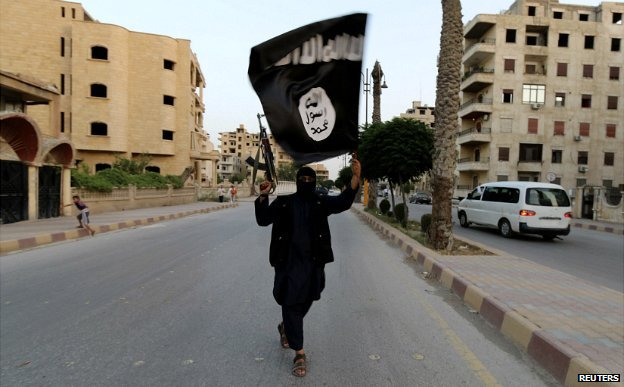Belgium is a country known for its beer, chocolate, picturesque towns, art – and grey diplomats heading to the EU.
It was even once named among the most boring places on earth.
But the north European nation was forced into the international spotlight on Tuesday by devastating terror attacks, later claimed by the Islamic State group.
Two explosions at Brussels airport and another at a metro station left at least 31 people dead and 250 wounded.
So why has Belgium been targeted and why is it being branded “Europe’s jihadi HQ”?
Belgium is literally in the middle of things and inside the EU’s Schengen area, which allows “passport-free travel” and means it’s easier for people to move round Europe.
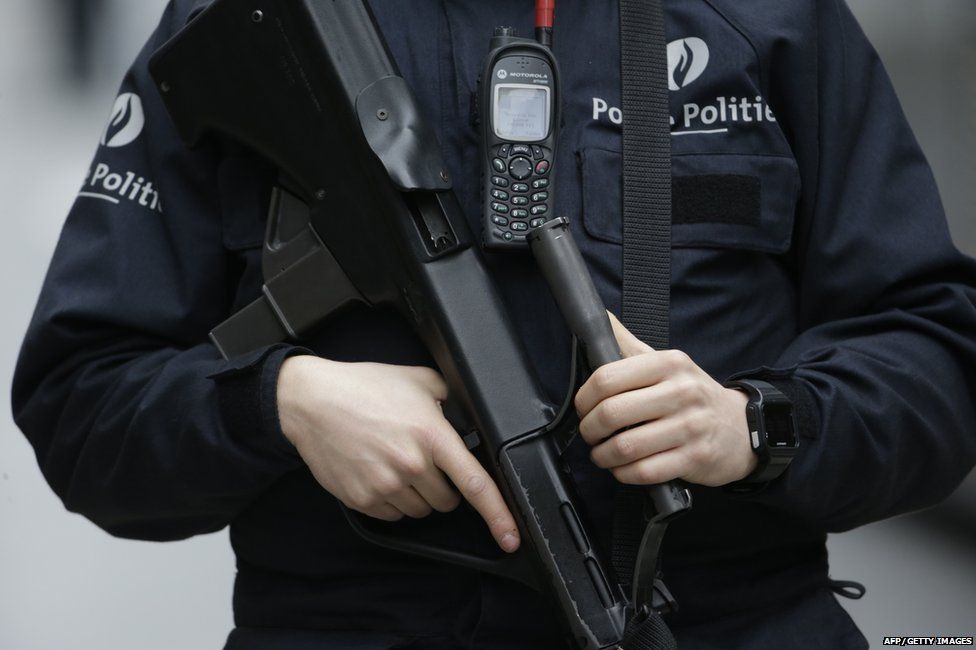
Professor Richard Whitman, a visiting fellow at Chatham House, which analyses international issues, says it’s also symbolic because it’s where many EU institutions are based.
“Brussels is Europe’s diplomatic and military capital. You’ve got the EU institutions there but you’ve also got Nato and other European agencies.
“If there’s any city in Europe that’s similar to Washington DC, it’s Brussels.”
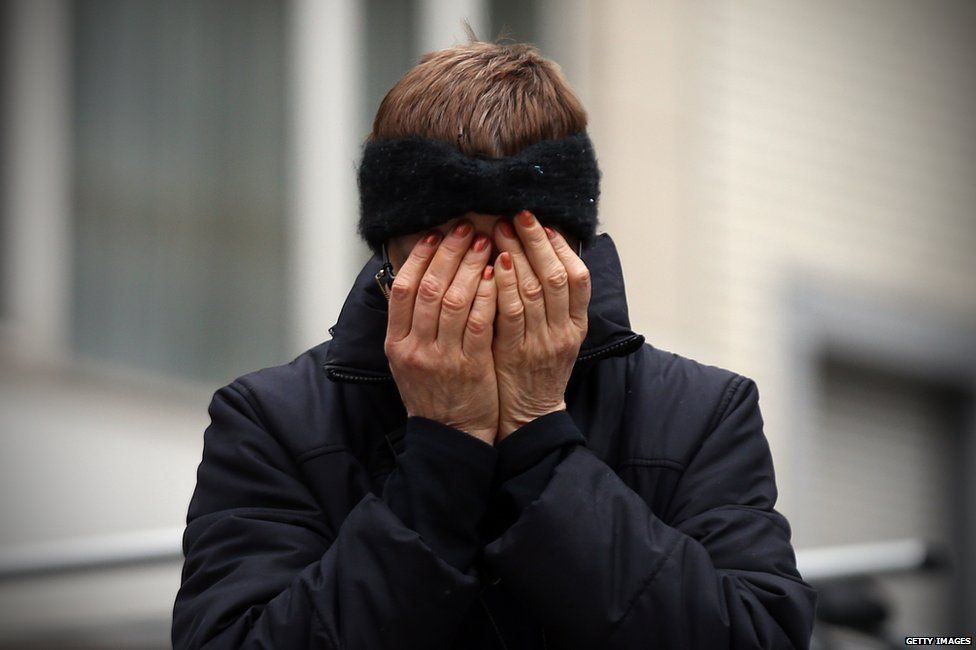
Brussels is known for its international illegal arms trade.
The Charlie Hebdo attackers, who killed 12 people at the satirical French newspaper in Paris last January and five more at a Jewish supermarket, got hold of their weapons in the Belgian capital.
There are problems with joblessness
Immigrant communities first developed in Belgium after World War Two when the country needed workers for its coal and steel industries.
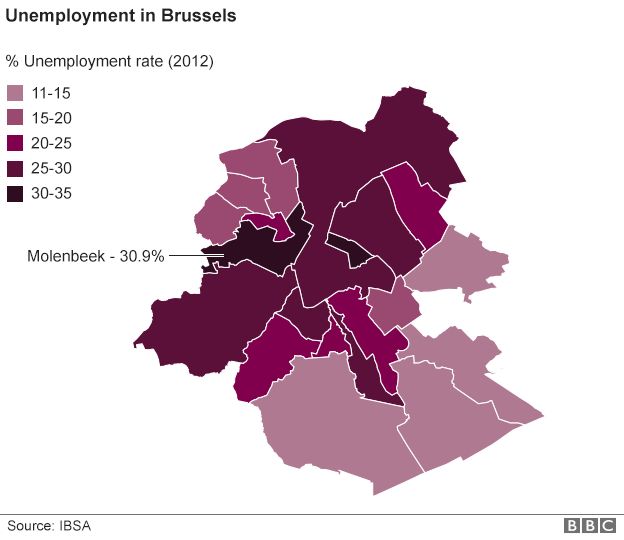
Migrants living in Belgium, many of them Muslims, are affected by the same problems as migrants elsewhere across Europe.
There are around 90,000 people living in the working class district of Molenbeek, where Tuesday’s attackers lived. 30% are of foreign descent.
Many, including young Muslims, are often discriminated against and can become targets for radicalisation.
More than 25% of young people in Molenbeek are unemployed.
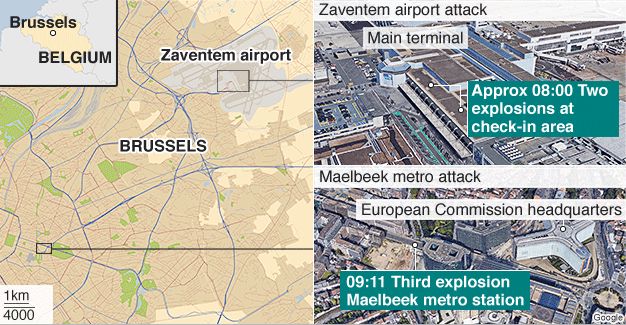
That diversity means Brussels itself is very multicultural.
“It’s relatively easy for people to conceal themselves within the normal population [in Belgium],” says Professor Whitman.
“You would not stand out if you were somebody of Moroccan or north African descent, so there’s the ability to camouflage yourself within the city as well as providing prestige targets.”
The north of Belgium is mainly Dutch-speaking and the south mainly French speaking, so immigrants find it harder to settle when they don’t speak the language.
Journeys to Syria and Iraq
According to the International Centre for the Study of Radicalisation and Political Violence, more Belgians have gone to fight for the militant Islamic State (IS) group than any other European country, per capita.
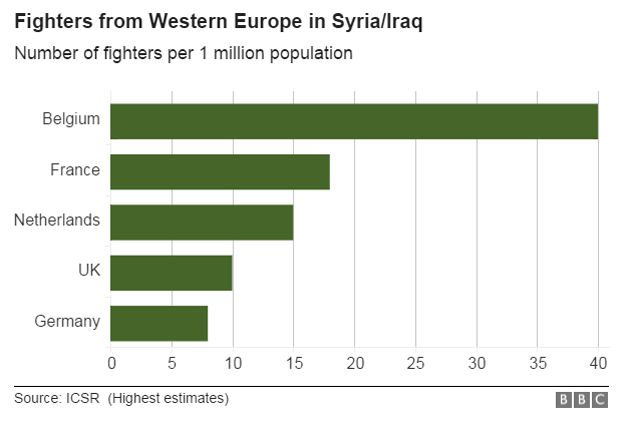
Around 450 Belgians have left the country to fight alongside jihadis in Syria and Iraq.
Surviving Paris attacker Salah Abdeslam, who was arrested last week, lived in Molenbeek all his life.
His brother Brahim killed himself using an explosive belt in a cafe at the Rue Voltaire.
One former senior police official warned in January that Belgium’s failure to integrate its Muslim minority had created a “system of apartheid”.
Belgium could also be a target because its military joined the Western coalition against IS last year.
Lost in translation…
Imams in Belgium tend to speak French or are from abroad, so young Dutch-speaking Muslims often turn to the internet for guidance.
Groups like Sharia4Belgium, which has now been split up, made the most of the vacuum left and sent recruits to militant groups such as Islamic State (IS), according to prosecutors in Belgium.
Officials estimate that 10% of the Belgians who have gone to fight in Syria had links to Sharia4Belgium.
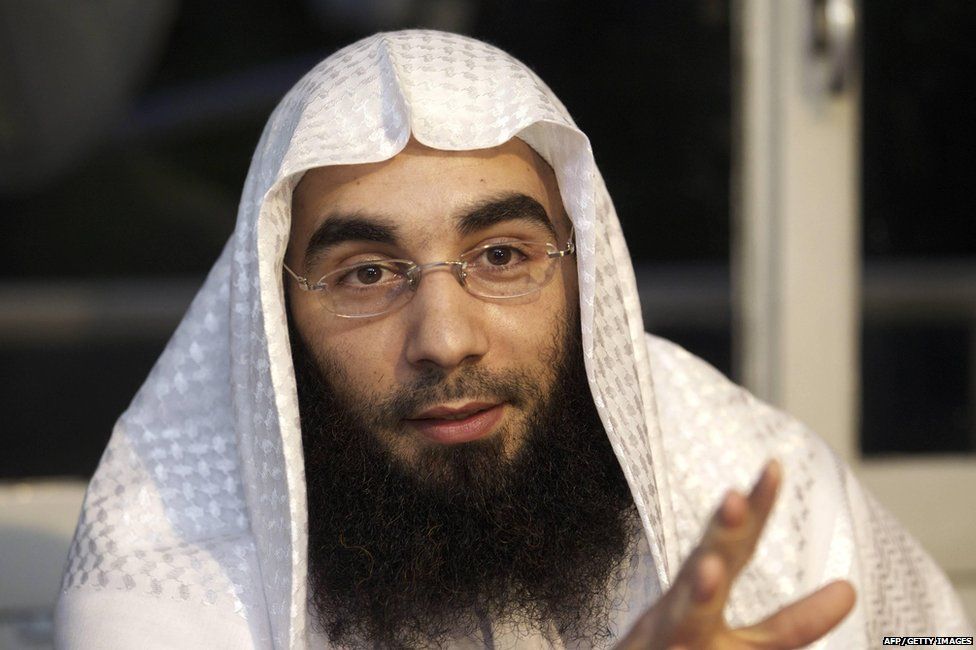
The leader of the group, Fouad Belkacem, was sentenced to 12 years in prison last February.
But what Belgium’s imams can’t give to young people is often used as a recruiting tool by extremists.
A split personality?
Belgium has a highly devolved government based on the different languages spoken in Belgium (Flemish, French and Dutch plus other dialects such as Walloon and Champenois).
It even has a separate parliament for its tiny German-speaking community.
That means lots of different structures which don’t always speak to each other.
On top of that police, the justice system and intelligence services are split across national or federal levels.
An example of that is the six different police zones which cross the 19 different boroughs in Brussels with 19 different mayors – all of which makes information sharing more difficult.
The country also has a tiny security apparatus compared to other EU countries and says it desperately needs more intelligence officers.
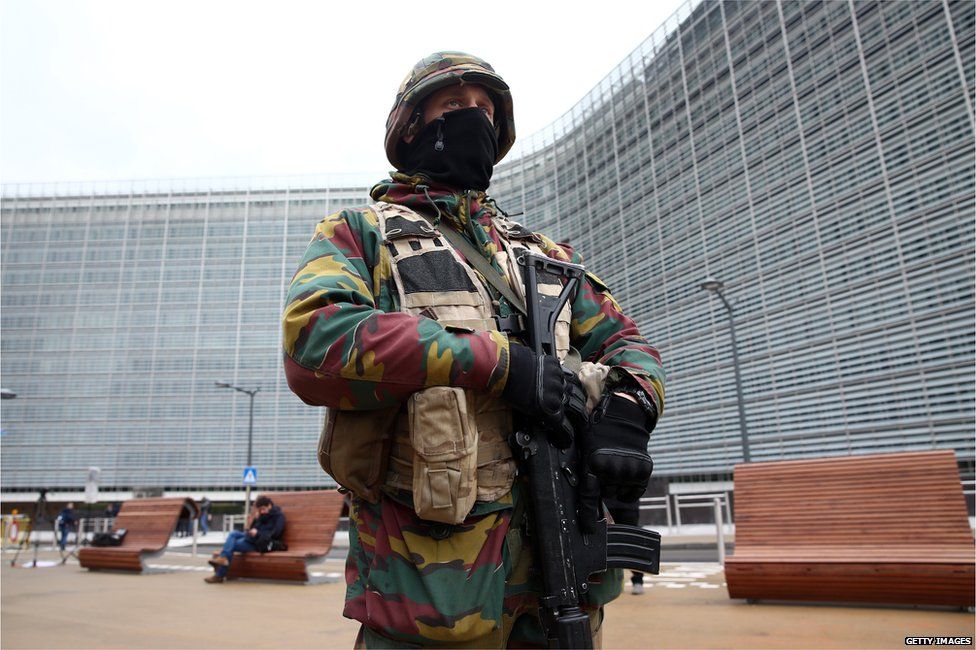
“One is that they’re not sharing intelligence with the right people. So their spooks aren’t passing on enough information to the Belgian police. They don’t trust them.
“The other problem is that they have really rubbish community relations. Look at the reaction when they went in and caught that guy on Friday night (Salah Abdeslam).
“Instead of the local population going, ‘Oh my God, this is so embarrassing you’ve caught a terrorist in our midst,’ they threw bottles at the police.
“They can’t stand the police.”
–
Source: BBC


